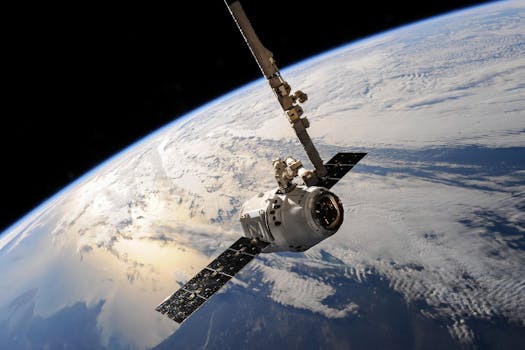The Future of Satellites: Revolutionizing Global Connectivity

The Future of Satellites: Revolutionizing Global Connectivity
The future of satellites is a rapidly evolving field, with new technologies and innovations emerging every year. As we look to the future, it’s clear that satellites will play an increasingly important role in shaping our world. From improving global connectivity to enabling new scientific discoveries, the potential of satellites is vast and exciting.
Satellites have been a crucial part of our lives for decades, providing us with everything from television signals to GPS navigation. However, the next generation of satellites is set to take this to a whole new level. With the development of new technologies such as 5G, quantum computing, and artificial intelligence, satellites are becoming more sophisticated and powerful than ever before.
Advancements in Space Technology
One of the key drivers of the future of satellites is the rapid advancement of space technology. Private companies such as SpaceX and Blue Origin are leading the charge, investing heavily in new technologies and innovations that are making space travel and satellite deployment more efficient and cost-effective. For example, SpaceX’s reusable rockets have significantly reduced the cost of launching satellites into orbit, making it more accessible for companies and governments to deploy their own satellites.
Another area of significant advancement is in the field of satellite manufacturing. New materials and technologies are being developed that are enabling the production of smaller, lighter, and more powerful satellites. This is allowing for the deployment of large constellations of satellites that can provide global coverage and connectivity.
Global Connectivity and the Internet of Things
The future of satellites is also closely tied to the development of the Internet of Things (IoT). As more and more devices become connected to the internet, the need for global connectivity and data transfer is increasing exponentially. Satellites are playing a critical role in this, providing the infrastructure for IoT devices to communicate with each other and with the rest of the world.
For example, satellites are being used to connect remote communities and provide them with access to the internet. This is having a significant impact on economic development, education, and healthcare in these areas. Satellites are also being used to track and monitor IoT devices, such as shipping containers and cargo, enabling real-time tracking and logistics management.
Environmental Monitoring and Scientific Research
Satellites are also playing a critical role in environmental monitoring and scientific research. With the ability to collect vast amounts of data from orbit, satellites are providing scientists with new insights into the Earth’s climate, weather patterns, and natural resources.
For example, satellites are being used to monitor deforestation, track ocean currents, and study the polar ice caps. This data is being used to inform policy decisions, develop new conservation strategies, and predict weather patterns. Satellites are also being used to study the universe, with missions such as the Hubble Space Telescope and the James Webb Space Telescope providing new insights into the cosmos.
Conclusion
In conclusion, the future of satellites is a rapidly evolving field that is set to transform the way we communicate, navigate, and understand our planet. With advancements in space technology, global connectivity, and scientific research, the potential of satellites is vast and exciting. As we look to the future, it’s clear that satellites will play an increasingly important role in shaping our world and improving our lives.







